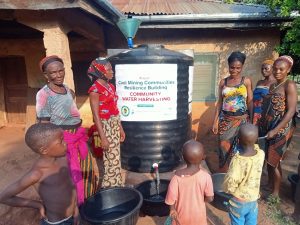March 8 annually is celebrated as International Women’s Day. This year, the theme is “Invest in women: Accelerate progress”. It has been that the most developed societies are those that invested in women. In Nigeria, the population of women is about 50% of the total population and no nation can make progress by leaving behind half of her population.

Investment in Water, Sanitation and Hygiene (WASH) is one of the most effective ways of investing in women. Poor access to WASH impacts more negatively on women and the girl child. They bear the most cost and burden of time sent in search of water for domestic uses, they are more vulnerable to infection from poor access to hygiene and non-availability of decent toilets.
Women are also the most susceptible to violence arising from looking for water or practicing open defecation. Even where toilets are built in public places, they are not inclusive and safe and do not accommodate the needs of women as envisaged by SDG 6.2. They are not able to access facilities for managing their menstrual hygiene with dignity and are therefore excluded from economic and livelihood activities during their period. This is made worse by the high cost of menstrual hygiene materials resulting in period poverty.
Low investment in WASH affects women’s rights to education, health, dignity of human persons and livelihoods.
As the world commemorates this year’s International Women’s Day, WaterAid calls on the Government of Nigeria at all levels to invest in increasing access to WASH in a manner that addresses the needs of women. This includes provision of potable water so that women can access water easily, investment in safe, inclusive, and sustainable sanitation facilities to guarantee women’s health and promote the availability of accessible and affordable hygiene materials to preserve women’s dignity.
Evelyn Mere, WaterAid’s County Director, says: “The lowest hanging fruit for investing in women to achieve progress is to invest in safe and inclusive WASH. Increasing access to clean water, decent toilets and good hygiene helps protect the rights of women, promote their dignity, and enhance national development. WaterAid has collaborated with some government agencies to design female friendly toilets that supports this process. We call on governments at all levels to adopt them, and invest in construction, and replication in public places as part of this women friendly investment that today seeks to promote.”
